
Sam Neill shares blood cancer update as he reveals he’s ‘not remotely afraid’ of death
Sam Neill has been warned by doctors that his cancer treatment drug will stop working at some point, the actor said as he provided a health update months after revealing that he had been diagnosed with stage-three blood cancer. Earlier this year, the Jurassic Park star released his memoir Did I Ever Tell You This?, in which he revealed that he was being treated for angioimmunoblastic T-cell lymphoma. At the time, Neill shared that he had originally undergone chemotherapy, but that the cancer had soon stopped responding. He then went onto an experimental anti-cancer drug. In a new interview, Neill, 76, shared that he’d upped his dosage of the “grim and depressing” drug from once a month to every two weeks. However, he said, he has now been in remission for 12 months. Neill told ABC’s Australian Story that while he would be on the treatment indefinitely, doctors have told him that, at some point, it will stop working. “I’m prepared for that,” he said, adding that he is “not remotely afraid” of death. The Piano star said that he had first found lumps in his neck in early 2022, and soon learnt that he had cancer. “I started to look at my life and realise how immensely grateful I am for so much of it,” Neill said. “I started to think I better write some of this down because I’m not sure how long I have to live. I was running against the clock." First sharing his cancer diagnosis in March, the New Zealand actor – who is best known for playing palaeontologist Dr Alan Grant in the Jurassic Park franchise – said that dying would “annoy” him. “I’d really like another decade or two, you know?” he said. “We’ve built all these lovely terraces, we’ve got these olive trees and cypresses, and I want to be around to see it all mature. And I’ve got my lovely little grandchildren. I want to see them get big. But as for the dying? I couldn’t care less.” In an interview with The Independent earlier this year, however, Neill threw out the idea of retiring. “The idea of giving up my day job? Intolerable!” he said. “I love acting. It’s really good for me to keep walking onto new sets with young actors and all that stimulation. New words, new ideas, there’s nothing like it. I never want to give that up. The idea of retirement, of having to play golf, fills me with untold dread,” he said. Read More Sam Neill says Robin Williams was ‘the loneliest man on a lonely planet’ Amy Dowden delights Strictly Come Dancing fans in surprise appearance amid breast cancer treatment Richard E Grant says there are friends he’ll ‘never speak to again’ after death of wife Joan 4 black women on their experiences with breast cancer Ed Gamble says he used to weigh himself every day amid ‘obsessive’ weight loss Some people are born with a ‘talent for happiness’ – so what’s their secret?
1970-01-01 08:00
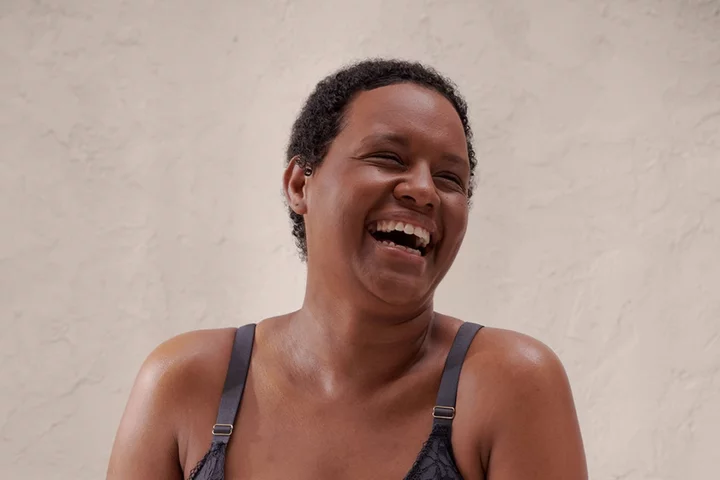
4 black women on their experiences with breast cancer
For black women living with breast cancer, it can be especially difficult to talk about what they’re going through – for various reasons. A study by Cancer Research UK and NHS Digital published earlier this year in BMJ Open found black women were more likely than white women to be diagnosed with late-stage cancer, when the disease is generally harder to treat – with lack of awareness, delays in seeking help and barriers to accessing diagnostic tests all cited as contributing factors. Stigma and myths around cancer in the black community can also play a part. “Speaking freely isn’t something that black women do naturally,” says Jacqueline Bassaragh, 56, who joined The Black Women Rising cancer support project in 2018, after struggling with the aftermath of her own breast cancer diagnosis at 51. The groups gave her a much needed safe space to open up. “If I felt angry, sad, even joyous and really happy, I could share every emotion I was going through without judgement,” Bassaragh adds of the flagship programme of The Leanne Pero Foundation, a registered UK charity which supports people of colour affected by cancer. Bassaragh says she initially “shut down” emotionally after receiving her diagnosis. She experienced a post-menopausal bleed, after not having had a period for years, and two days later her left breast started leaking and became very hard, hot to touch and painful. When it had calmed down, she felt a lump and booked an appointment with her GP, who referred her to the local hospital. “The consultant shared that I had breast cancer in such a crude way. I asked if my son could join me — he was in the waiting room — and he repeated himself in the exact fast and crude way again,” Bassaragh recalls. “I was feeling angry inside, but when I looked over at my son and could see his eyes watering up, in that instance — as we do as black women — I just shut down my emotions and asked what we needed to do next. I hadn’t actually cried about it until April this year.” Rhakima Khan recalls how her first reaction when told she had hormonal-based breast cancer on Valentine’s Day, 2022, was laughter. “It’s a coping mechanism I’ve had since I was a child,” says Khan, 36. “The nurse was so taken aback, as she was expecting me to break down. At that moment, I accepted the news and just wanted to know what we were going to do next. “But when I walked out of that consultant room and went to the toilet, I cried. Not because I was sad, angry or frustrated. I cried because they diagnose you with breast cancer and then immediately flood you with information. That can be very overwhelming.“ Khan had discovered a lump near her sternum whilst having a shower after working a late shift as a theatre practitioner at Bristol Children’s Hospital. “I went across my chest with my sponge and thought, that wasn’t there before. I had checked my breasts the previous month but hadn’t checked them yet that month, so I lifted my hands and began,” she says. “I found a decent-sized lump that wasn’t very visible but hard and rigid. It just didn’t sit right with me.” She remembers being determined to stay alive for her son, who was nine, and daughter, who was two. “If it meant I’m going to lose two breasts — though the NHS would only allow me to have a single mastectomy because I didn’t have an aggressive form of cancer — so be it. My breasts don’t make me a woman, they were there to feed my children. It’s society that has sexualised them,” Khan says. She also took up blogging, documenting her journey to encourage other black women to regularly check their breasts . This is how Khan got involved in the new Primark and Breast Cancer Now campaign in celebration of Breast Cancer Awareness Month; the retailer will be donating £300,000 to the charity for support and research. Toye Sofidiya, 33, was first diagnosed and treated in 2016. The cancer returned in 2020 just before the first lockdown, and she eventually had a mastectomy in September that year. “I haven’t come to terms with it,” says Sofidiya. “It’s been three years since my body has gone through a major change – it’s not something you ever get used to. Going on holidays, gaining weight, having to always wear a bra, having to look extra hard for outfits that I would be comfortable and still stylish in. “I sometimes even forget to wear my prosthetic boob, which I can only wear with mastectomy or post-op surgery bras. I don’t mind wearing a lot of T-shirts, tank tops and bandeaus, but I’m really limited as a young woman. I’m worrying about things my friends don’t have to consider. “It’s important to know your body,” she adds. “I knew my body, and as soon as something seemed out of place for me, I knew I had to get checked, because I have a history of cancer in my family. I just didn’t think I would get it.” Neither did Deandra Paul, 29, who found a “tiny lump” on her left breast, two days after finding out she was pregnant with her second child, after being prompted by an Instagram post to do a self-examination. Paul had only recently stopped breastfeeding her baby daughter – but wanted to be sure so she booked a GP appointment, only to be told there probably wasn’t anything to worry about. “I wasn’t happy and wanted to get checked out properly,” Paul recalls. “So the GP made a referral to [the hospital] where I had a physical examination. They told me the same thing and said it was probably just [benign]. But due to their policy, they still had to do a biopsy and two weeks later on June 27, 2022, they told me I had breast cancer. “I remember having an out-of-body experience, where I could see and hear myself shrieking like a hyena. My husband, who was with me at the appointment, was just quiet. I was so alarmed because I have no history of breast cancer in my family. They never told me what to do, but said I could either keep or terminate the baby. “Most people in the black community would assume you can’t do chemotherapy or a mastectomy whilst you’re pregnant, but you can. It’s what I decided to do after going into research mode, to see if anyone has ever done it before,” adds Paul. “I stumbled across the Cancer and Pregnancy Registry, run by an American lady who has been studying cancer and pregnant patients. None of the women looked like me, but thankfully, someone had a similar story to mine.” After surgery to remove the lump and some chemotherapy, she decided to switch to London Bridge Hospital to receive private healthcare from HCA Healthcare UK, where she had more treatment and a skin-sparing mastectomy (with plans for an implant in the future). “Invest in your health,” she Paul. “If you have had the experience of not being listened to, or fear that your health is dismissed by the system, then try and seek a second opinion. If you or your partner have private healthcare through work, use it. If you don’t, research your options for health insurance and really consider if there’s something else that you can give up in your monthly expenses to invest in your health. Health truly is wealth.” Read More See Madonna’s extravagant tour outfits – including an updated cone bra Halloween pumpkins – how to grow your own Presenter Louise Minchin: Menopause conversations are no longer taboo – but we need to keep going Online apps recommended to manage lower back pain From choppy bobs to fox red, 5 celebrity-approved hair trends for autumn The UK’s first dedicated male breast cancer organisation has launched
1970-01-01 08:00

Penelope Cruz read Enzo Ferrari's love letters to play his wife
Penelope Cruz has revealed she read Enzo Ferrari's love letters to get a better understanding of his marriage before playing his wife Laura in new biopic Ferrari
1970-01-01 08:00
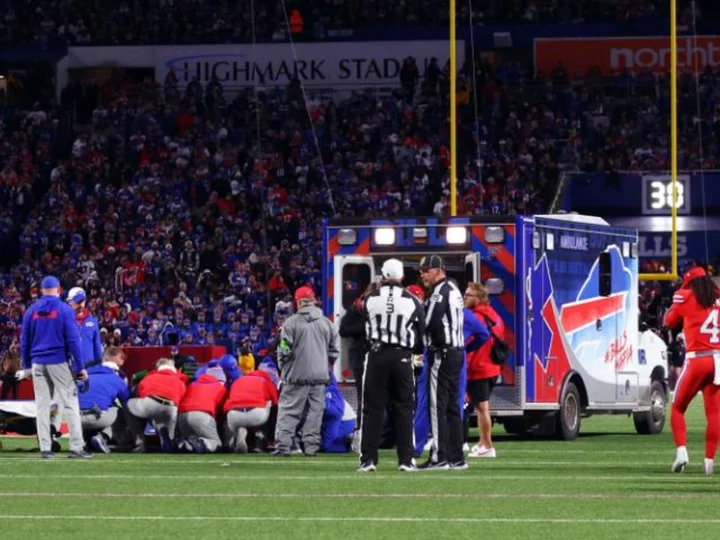
Buffalo Bills' Damien Harris was removed from the field on a gurney during New York Giants game
Buffalo Bills running back Damien Harris was transported off the field on an ambulance after sustaining a neck injury during the team's home game against the New York Giants on Sunday night.
1970-01-01 08:00

Bill RB Damien Harris leaves field in ambulance: Everything to know
Bills running back Damien Harris was carted off the field in an ambulance on Sunday Night Football. Here's everything we know about his status after the scary injury.
1970-01-01 08:00

Damien Harris Taken Off Field in an Ambulance After Violent Collision
VIDEO: Damien Harris injury.
1970-01-01 08:00
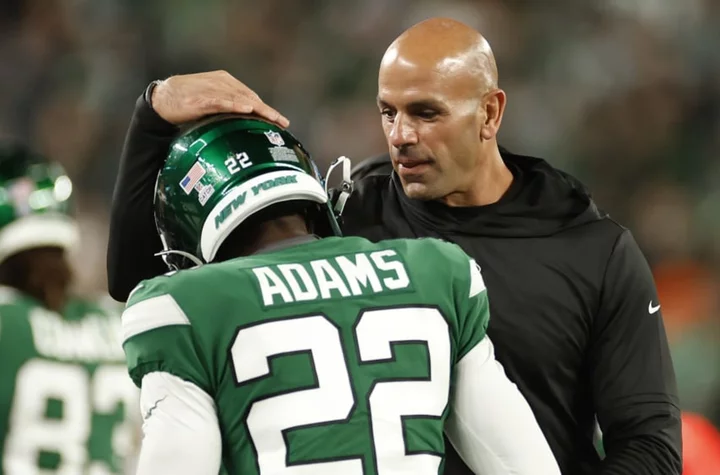
3 Jets who deserve most credit for upsetting Eagles
The New York Jets upset the Philadelphia Eagles with an impressive defensive performance. These Jets deserve game balls.
1970-01-01 08:00
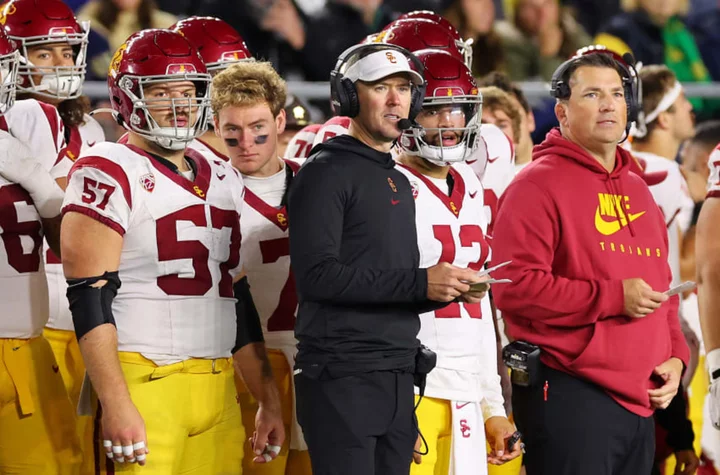
Lincoln Riley, USC exposed vs. Notre Dame: Best memes and tweets
Social media users trolled the USC Trojans, head coach Lincoln Riley, and quarterback Caleb Williams after their blowout loss to the Notre Dame Fighting Irish in Week 7.
1970-01-01 08:00

College football rankings 2023: Projected Week 8 AP Top 25 after Notre Dame blasts USC, Washington prevails
Projecting the AP Top 25 college football rankings for Week 8 after Notre Dame flat-out embarrassed USC, Washington outlasted Oregon in Seattle, UNC made a statement against Miami, and much more on Saturday.
1970-01-01 08:00
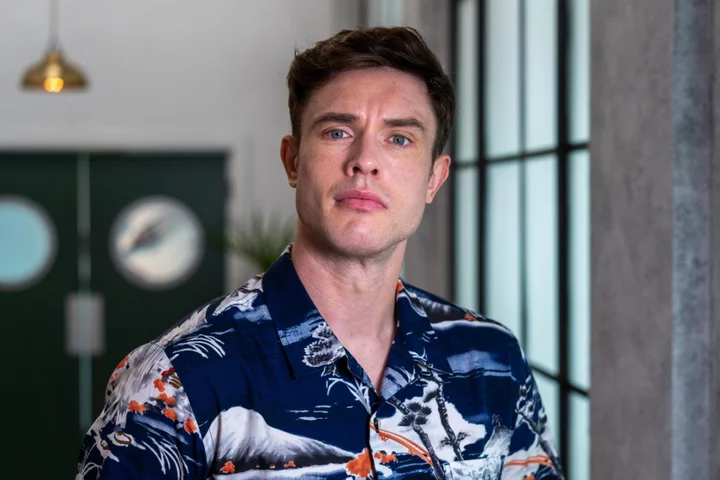
Ed Gamble used to weigh himself every day amid ‘obsessive’ weight loss: ‘I didn’t have a social life’
Comedian Ed Gamble has opened up about battling his “obsessive” tendencies and the “evil” bathroom scales while discussing losing weight. The stand-up comic and panel show regular lost seven stone in weight in his early twenties, and is now releasing a memoir about his relationship with food titled Glutton: The Multi-Course Life of a Very Greedy Boy. In a new interview with The Times, the comic – who hosts comedy food podcast Off Menu with fellow comedian James Acaster – opened up about the ways losing weight changed his life. “After losing weight, I got more obsessed with my image. You do feel different, wondering, ‘Oh, maybe I’m attractive now.’” Gamble, 37, said that he had developed a fixation on fitness after losing weight, and currently took part in the “cult” of CrossFit. However, the Great British Menu judge – who has Type 1 diabetes – had to watch his more obsessive tendencies when he first began to lose weight after he dropped to 12 stone. At this point, Gamble was weighing himself every day. “That’s not a weight I operate well at,” he recalled. “It means I don’t have a social life; I’m always exercising and thinking about what I eat. “At that point, my mum said, ‘You don’t need to keep doing this. Build in having fun again.’” Gamble said that while had weighing scales in his bathroom at the time, he saw them as “evil”. “You’ve put on 2lb. So what? Stop looking. Go with how you feel,” he said. Growing up as a “posh little boy”, Gamble often used food to prove that he was “like the grown-ups”. Speaking to The Independent in August, Ed Gamble recalled first eating poached salmon when he was three or four years old. “I think it would be easy to serve child me in a restaurant,” he said. “I think you’d think I was weird, possibly, because I’d be sat bold upright at the table, sort of like a mini [food critic] Jay Rayner, just demanding everything.” Glutton: The Multi-Course Life of a Very Greedy Boy is released on 26 October. For anyone struggling with the issues raised in this article, eating disorder charity Beat’s helpline is available 365 days a year on 0808 801 0677. NCFED offers information, resources and counselling for those suffering from eating disorders, as well as their support networks. Visit eating-disorders.org.uk or call 0845 838 2040 Read More Should plus-size travellers be asked to take weight-loss drugs for flights? It’s plane crazy Paloma Faith on her heartbreak and being a single mum: ‘Our relationship ended because we had those children – it was worth it’ Weight-loss jabs linked to ‘severe’ stomach problems – study Some people are born with a ‘talent for happiness’ – so what’s their secret? Presenter Louise Minchin: Menopause conversations are no longer taboo – but we need to keep going Israel-Hamas conflict: How to talk to teenagers about distressing news stories
1970-01-01 08:00
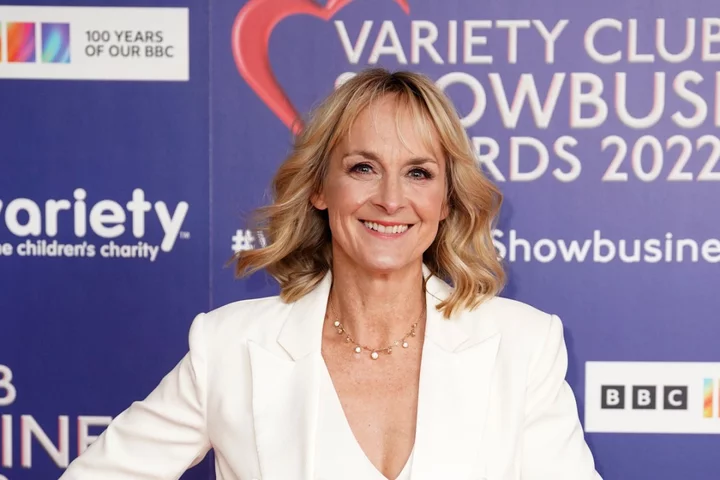
Presenter Louise Minchin: Menopause conversations are no longer taboo – but we need to keep going
Menopause awareness has come a long way in recent years – especially in the workplace. This stands to reason, as nearly 80% of menopause-age women in the UK are in work, according to the Faculty of Occupational Medicine (FOM). In fact, according to ONS figures, menopausal women are the fastest-growing demographic in the workforce. While menopause isn’t challenging for everyone, around three-quarters going through it will experience symptoms – such as brain fog, impaired sleep, hot flushes, anxiety and mood changes – and for one in four women, the impact is severe. Celebrities like Davina McCall have worked hard to tackle taboos and open up conversations around menopause, and a lot has been going on behind the scenes to improve things across healthcare and the workplace. As World Menopause Day 2023 (October 18) approaches, three key figures in the field share their thoughts on the progress so far, and what needs to happen next… Louise Minchin, TV presenter, author and journalist “Progress has definitely been made in respect of people feeling able to speak up. Even if they don’t yet have the answers, people know they can ask the questions – the conversation is no longer taboo, which is brilliant,” says Minchin, who has been at the forefront of menopause conversations in the media. “There’s so much more in the public domain on menopause now, and this enables people to have more of a handle on the topic, and a much better idea where to find help.” In terms of what needs to happen next, she adds: “Employers should be much clearer on how to access training, advice and signposting services that will help their employees work through menopause. Guidelines are all well and good, but [people] need clarity – they need action plans, access to expert trainers and well-informed educators to help them understand and meet their responsibilities and obligations. “It’s important to change the culture, as only when this happens can people open up about what’s happening to them. If you have a supportive and open culture, people feel able to continue in their jobs with the changes that might be needed,” says Minchin – adding that it’s also important to remember “not everyone wants to share or will feel comfortable talking about their situation or their symptoms”, and that needs to be respected too. “We must keep going until we reach the point where we don’t even have to have a conversation about what employers are doing to support colleagues through menopause – because they just are.” Deborah Garlick, CEO of Henpicked: Menopause In The Workplace “In terms of progress, we’ve seen a significant increase in the number of employers taking menopause in the workplace seriously. Seven years ago, no employers had a menopause policy or guidance document. “Today, research suggests around half do, and we have hundreds of employers working towards The Menopause Friendly Accreditation to prove and demonstrate the remarkable, positive impact they’re making for their colleagues,” says Garlick, referencing a scheme set up to show employers ‘have a clear understanding of how menopause can have an effect at work’ and that they ‘care about the wellbeing’ of women at work. “Next we need to see every employer commit to being menopause friendly by putting their menopause policy into action. This is urgent, important and critical for organisational success, particularly with the double threat of our ageing population and the shrinking talent pool,” adds Garlick. “Employers who fail to look after people working through menopause will fall behind.” Rt Hon Caroline Nokes MP, Chair of the Women and Equalities Committee “We’ve made progress on the taboo and stigma, but we need healthcare to up its game. Too many women are still being told they’re too young, it’s depression, you can manage without HRT,” says Nokes, who heads up the cross-party committee set up in 2015 to scrutinise government work and spending around issues impacting women. HRT shortages also need to be tackled, Nokes adds: “You can’t be at your awesome best if you’re anxious about whether your next prescription will be filled – and that is in itself a workplace issue. If we are worried about productivity as a nation, then we need to give menopausal and perimenopausal women the tools to be as productive as possible.” Read More Online apps recommended to manage lower back pain From choppy bobs to fox red, 5 celebrity-approved hair trends for autumn The UK’s first dedicated male breast cancer organisation has launched How Taylor Swift’s style has evolved over the years Model Emily Ratajkowski unveils latest fashion campaign 10 ways to cosy-up your home for an autumnal vibe
1970-01-01 08:00

Online apps recommended to manage lower back pain
Online apps have been recommended to help people with lower back pain in a bid to tackle NHS waiting lists. Seven platforms have been given the green light for people over the age of 16 to manage their condition in early value assessment guidance published by the National Institute for Health and Care Excellence (Nice). According to the NHS Long Term Plan, lower back pain is the biggest cause of disability and is thought to account for about 30% of GP consultations every year. England affected by long-term back pain" data-source="UKHSA"> UK Health Security Agency (UKHSA) figures show there are 9.11 million people living with long-term back pain in England. Nice said it hopes its guidance will work towards reducing inequalities in care for musculoskeletal conditions. It also hopes the move could reduce NHS waiting lists, as well as bringing down the number for people using medication or waiting for GP or physiotherapy appointments. On Thursday, it emerged that a record 7.75 million people in England were waiting to start NHS treatment at the end of August. The digital platforms our committee has recommended could provide the NHS with extra capacity to get those effected off waiting lists, which vary in length across the country, and into treatment Mark Chapman, Nice Mark Chapman, interim director of medical technology and digital evaluation at Nice, said: “More than two million people suffer from low back pain each year and there are considerable pressures on NHS services to provide the treatment and care to those needing support with this debilitating condition. “The digital platforms our committee has recommended could provide the NHS with extra capacity to get those effected off waiting lists, which vary in length across the country, and into treatment. “We believe these technologies have the potential to offer value for money for the taxpayer, while offering people with low back pain quicker access to get the care they need at a time and place of their choosing.” The platforms recommended for NHS use are ACT for PAIN, getUBetter, Hinge Health, Kaia, Pathway through Pain, selfBACK and SupportBack. Some of the apps are designed for people with new back pain, while others are aimed at those with chronic back pain. These apps are yet another example of how technology can be used help patients get the care they need, when they need it Health minister Will Quince The platforms offer access to multi-disciplinary teams, along with guided exercise videos, and reminder functions for patients to do tasks such as filling in questionnaires. Health minister Will Quince added: “These apps are yet another example of how technology can be used help patients get the care they need, when they need it. “They offer a range of services which will allow patients to manage lower back pain from the comfort of their homes by improving access to musculoskeletal services – which will form a key part of our Major Conditions Strategy. “This will help to reduce pressures on the NHS and can help to cut waiting lists – one of the government’s top priorities – and will help people to live happier, healthier lives.” The technologies recommended in the guidance can be used once they have appropriate regulatory approval and meet the standards within NHS England’s Digital Technology Assessment Criteria, Nice said. The watchdog also recommends lower back pain self-management, exercise, manual therapies, psychological therapy, and combined physical and psychological programmes as well as return to work programmes. Denice Logan Rose, executive director of BackCare (National Back Pain Association), said: “Very many people living with non-specific low back pain feel that they have nowhere to turn for help, they are desperate and are at a complete loss about what they can do to help themselves. “Apps form a significant part of the technology-driven world we live in and if they can be used to help people living with back pain to lead more pain-free and active lives, this is a huge step forward.” Read More From choppy bobs to fox red, 5 celebrity-approved hair trends for autumn The UK’s first dedicated male breast cancer organisation has launched – here’s why it matters How Taylor Swift’s style has evolved over the years Model Emily Ratajkowski unveils latest fashion campaign 10 ways to cosy-up your home for an autumnal vibe 5 must-have bag trends for autumn
1970-01-01 08:00
